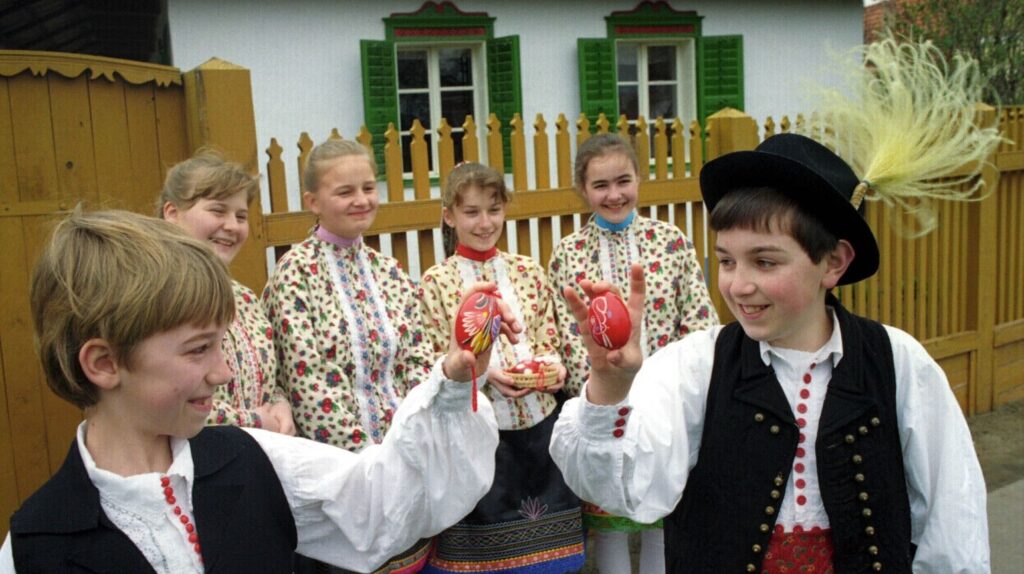Tamás Róna, president of the Hungarian Jewish Prayer Association, reacted in an open letter to David Nirenberg’s Wall Street Journal article published on 5 January which accused Prime Minister Viktor Orbán of anti-Semitism. The Hungarian rabbi said he was deeply shocked by the article, both as Chief Rabbi and as a Hungarian since the Hungarian government has been highly supportive of Jews in the past 12 years. If we look at the facts it becomes clear that Tamás Róna is right, and Mr Nirenberg is wrong.
The Nirenberg Article
David Nirenberg, Director and Leon Levy at the Institute for Advanced Study in Princeton, N.J., and author of the book Anti-Judaism: The Western Tradition, presented an overview of anti-Semitic prejudices and theories from the past to highlight the roots of today’s anti-Semitism in a recent article in The Wall Street Journal titled ‘History Can Be an Antidote to Antisemitism’. At the beginning of his piece, when he examines the question of what counts as antisemitism, the professor listed some people whom he called the ‘opponents of Jewish power,’ mentioning British Labour Party politician Jeremy Corbyn, and Hungarian Prime Minister Viktor Orbán. ‘Prominent European politicians who have cast themselves as opponents of Jewish power include the U.K.’s Jeremy Corbyn on the left and Hungary’s Viktor Orban on the right,’ Mr Nirenberg wrote.
Since Mr Nirenberg felt there was no need for actual evidence to underpin his insinuation that the Hungarian prime minister is an antisemite, let us look at some concrete manifestations of ‘Viktor Orbán’s anti-Semitism’ from the last 12 years of his premiership.
Renaissance of Jewish Life in Hungary
‘Hungary is home to the third largest Jewish community in Europe and we Hungarians are proud of this. Today, Jewish culture and Jewish people are experiencing a renaissance in Hungary, and our country will continue to do everything in its power to ensure that the Jewish people can continue to live in Hungary in utmost safety, ’ President of the Republic Katalin Novák highlighted after meeting with her Israeli counterpart Isaac Herzog during her visit to the Holy Land in November 2022. And this is just a most recent example of high ranking Hungarian officials expressing unequivocal support for the country’s Jewish community.
The Hungarian government has had a zero-tolerance policy towards anti-Semitism since 2010
and has revised hate speech legislation while making teaching about the Holocaust part of the curriculum in schools. In Hungary there is no political-social interference in nor serious public debate about the practice of Jewish traditions such as ‘brit mila’ (circumcision) or ‘shechita’ (kosher slaughter) which has been the subject of intense disputes in other European countries in recent years. The government allocates significant financial resources to Hungarian Jewish communities for religious and cultural projects such as synagogue renovations.
‘All of the Jewish citizens in Hungary are under the protection of the government. We are proud that in Hungary, self-identifying Jews, who celebrate and preserve Jewish traditions can feel safe,’ Viktor Orbán said at a joint press conference with PM Benjamin Netanyahu on his visit to Israel in 2018.
In a recent Danube Institute podcast, Rabbi Baruch Oberlander, head of the Budapest Orthodox Rabbinate was asked about his opinion of Hungary often being portrayed as having a major anti-Semitism problem, including anti-Semitic violence, by the Western media and academia. Rabbi Oberlander approached this issue in a very practical way, by asking the following question: ‘Are Jews afraid to walk in the street?’ As the answer is absolutely no, it follows that Hungary is a safe place for Jews, Rabbi Oberlander remarked, which cannot be said about other countries in Europe. Anti-Semitism is not considered to be a major problem at a practical level in Hungary, and some organisations are working to keep it that way, such as the Action and Protection Foundation, established by the Unified Hungarian Jewish Congregation (EMIH), the Rabbi underscored.
Measurable Reality
A comprehensive study conducted by the European Jewish Association (EJA) in cooperation with the British Institute of Jewish Policy Research was presented in May 2022, in Budapest. The study found that after Denmark, Hungary is considered the safest place for Jews among the twelve European countries that were observed. The survey also revealed that Hungarian Jews have been the least affected by any form of antisemitism among the measured countries over the past years.
‘Over the past few years, Hungarian Jews have felt their situation improve, and we are glad to see that the findings of the EJA study support our perceptions,’ Rabbi Slomó Köves, Chief Rabbi of the Association of Hungarian Jewish Communities (EMIH) commented in response to the survey.
Fruitful Hungarian Israeli partnership
‘The alliance of Hungary and Israel is unshakable’, President Katalin Novák said after she met with President of the State of Israel Isaac Herzog in Jerusalem.
‘Hungary is not only an ally but a friend to Israel,’
echoed then Acting Prime Minister Yair Lapid after his meeting with the Hungarian President.
The relationship between the two countries has in fact been excellent for many years now. 2015 marked a turning point in relations between the two countries, after Benjamin Netanyahu won a huge victory in that year’s election. The former/current Israeli PM has been actively building partnerships in Europe and he found new allies among Central-European nations who have adopted a more pragmatic, realpolitik-like stance towards Israel, welcoming Jewish intellectual capital, innovations, and military technology. Moreover, these countries are part of the EU, and as such, can play an important role in softening the bloc’s largely anti-Israeli position.
Relations between Israel and Hungary include substantial cooperation in the fields of economic and military development, as well as in science and innovation. Israel’s traditions of innovation and state-of-the-art technology have been welcomed in Hungary in many economic sectors, even including space exploration. Hungary has also announced the purchase of the radar system used in Israel’s so-called ‘Iron Dome’ aerial defence system.
With the return of Benjamin Netanyahu as a prime minister, Hungarian-Israeli relations are likely to develop further, given the friendly relationship between Mr Netanyahu and Viktor Orbán. But the relationship between the two prime ministers is based on more than just personal rapport and friendship: they are, in a sense, also ‘brothers in arms’, since ‘it’s the same European establishment that opposes Orbán’s Hungary which also opposes Netanyahu’s Israel,’ EMIH leader Slomó Köves has noted.
Standing up for Israel In International Institutions
Hungary has vetoed many resolutions targeting the Jewish state in both the UN and the EU, including the ones which sought to declare Israeli settlements illegal or to condemn the United States for moving its embassy to Jerusalem. Hungary also opposes the BDS (Boycott, Divestment, Sanctions) movement and rejects a ban on kosher slaughter, thus helping to preserve Europe’s Judeo-Christian heritage.
After the US recognised Jerusalem as Israel’s capital, Hungary opened a trade office in the city,
a gesture towards both Israel and the US. Budapest also supported President Donald Trump’s Middle East peace plan.
‘I have a general problem with these European statements on Israel. They are usually pretty biased, pretty much unbalanced. They do not take into consideration the security concerns of Israel and the Israeli people…the efforts Israelis make to have a stable and secure Middle-East,’ Foreign Minister Péter Szijjártó argued in May 2021 after Hungary—as the only EU county—rejected the draft of a joint EU declaration on the Israeli-Palestine conflict.
The European Union is also one of the main donors to the Palestinian Authority. Only in 2021, Brussels provided €317 million in form of financial aid. However, thanks to Hungary’s lobbying, this is the first year that part of these grants is subjected to conditions such as reforms in the PA’s textbooks. PA textbooks have long been a subject of controversy, as they delegitimise Israel’s existence, demonise Jews, and glorify terrorism—efforts which the EU should definitely not support.
Hosting Ukrainian Jewish Refugees
In June, the President of the Federation of Jewish Communities of Ukraine (FJCU), Rabbi Mayer Tzvi Stambler wrote a letter to Viktor Orbán thanking Hungary for taking in Jewish refugees from Ukraine. A kosher rescue village has been also set up in Hungary near Lake Balaton called ‘Machne Chabad’ which is the largest Jewish rescue camp in Europe, open to all Jews fleeing the war in Ukraine. The kosher shelter in Balatonőszöd is run by the Association of Hungarian Jewish Communities (EMIH) and the Federation of the Jewish Communities of Ukraine, with the support of the Hungarian government.
Rabbi Róna’s Open Letter
In light of all these facts, assertions that portray Hungary as a country where anti-Semitism is a widespread problem or suggest, as Mr Nirenberg has, that the Hungarian prime minister is an antisemite, seem quite bizarre, to say the least.
Tamás Róna, president of the Hungarian Jewish Prayer Association (Zsima), felt compelled to respond to the article and penned an open letter refuting its allegations.
‘I’d like to emphasise that mentioning systemic antisemitism about Hungary is a factual error and shows ignorance,’ Rabbi Róna declared, adding that he was deeply shocked by the article, both as Chief Rabbi and as a Hungarian.
‘In addition to its inaccuracy, I would like to point out that calling the Prime Minister of Hungary, Viktor Orbán, an anti-Semite in a world-famous newspaper that reaches millions of people is an extreme statement, especially since as Chief Rabbi I can say that our government has been supporting Hungarian and Hungarian-speaking Jewish communities in Hungary and in neighbouring countries for the past 12, almost 13 years,’ Rabbi Tamás Róna stated.








